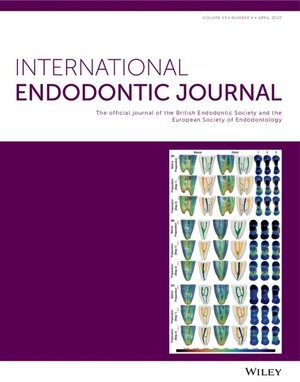Calcium silicate-based cements have been widely used in dentistry mainly due to their physicochemical and biological properties. Commercially available materials use radiopacifiers containing metals (bismuth, tantalum, tungsten and/or zirconium).
To investigate volumetric changes, in vivo biocompatibility and systemic migration from eight commercially available materials, including powder/liquid and ‘ready-to-use’ presentations.
After characterization, tubes were implanted in healthy Wistar rats' alveolar bone and subcutaneous tissues. Micro-CT was used to evaluate volumetric change before/after 30 days of implantation. Histological and immunohistochemistry analysis were used to evaluate materials' biocompatibility. After euthanasia, kidney samples were retrieved, acidic digested and evaluated by inductively coupled plasma mass spectrometry (ICP-MS) for bismuth, tantalum, tungsten and zirconium mass fractions. Statistical analysis compared the results for normality and comparisons adopted a level of significance of 0.05.
Characterization photomicrographs and spectroscopy analysis revealed calcium, silicon and radiopacifiers for tested cements. Volumetric changes after implantation showed higher alteration in subcutaneous tissues than alveolar bone indicating that Biodentine, EndoSequence BC RRM Putty and ProRoot MTA were the most stable materials. Histological analysis found intense inflammation for NeoPUTTY and moderate for the other materials; osteocalcin and osteopontin were positively marked for all materials. Despite its volumetric stability, ProRoot MTA showed a 1000-fold higher mass fraction of bismuth accumulation and MTA Repair HP a 37-fold higher tungsten accumulation in kidney samples when compared with the nonexposed controls. All tantalum-analysed samples indicated a similar mass fraction with the nonexposed controls. Biodentine exhibited a significant lower kidney mass fraction of zirconium accumulation when compared with this control.
Volumetric analysis revealed that Bio-C Repair, NeoPUTTY and MTA Repair HP presented greater volumetric loss when implanted in the subcutaneous tissue. NeoPUTTY presented more intense inflammatory infiltrate. Systemic migration analysis highlighted the predominance of bismuth in the ProRoot MTA group. These results suggest that endodontic repair cements are affected by their chemical composition, the type of implant tissue and different clinical settings.


